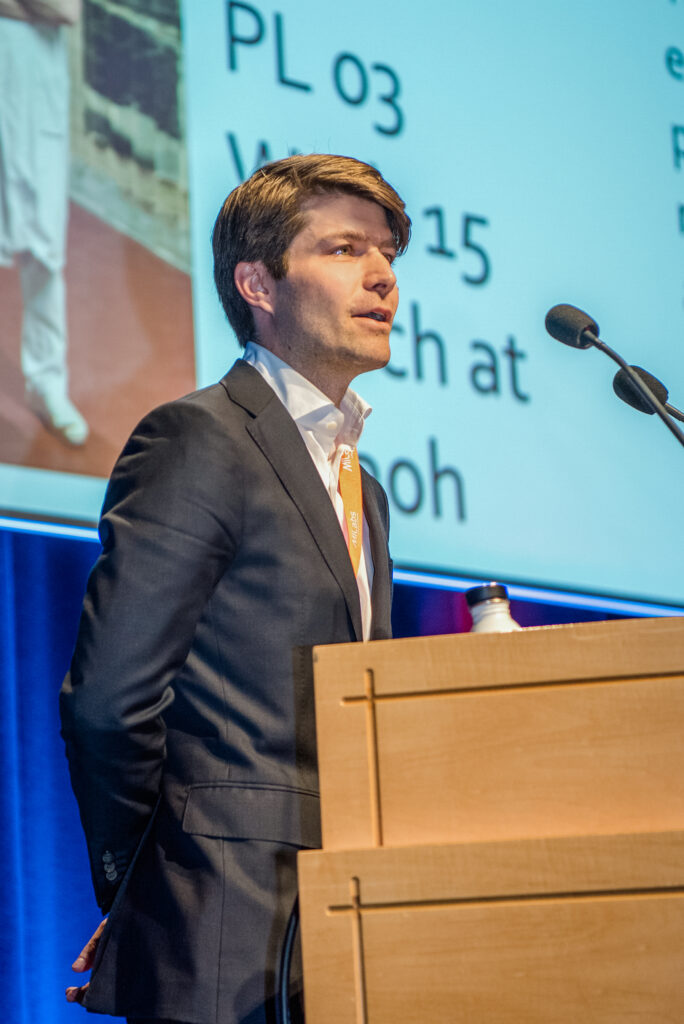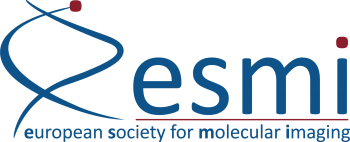„The committee was very impressed by the enormous breadth and depth of the research presented by Max Senders. Max has developed several novel approaches to detect and characterize atherosclerosis. These technologies may not only be valuable for the diagnostic workup of atherosclerosis but may also guide targeted therapeutic interventions.“hese excellent young imaging scientists in our society!”
And the winner is…

Max Senders from Amsterdam with his PhD thesis on “Precision imaging and nanoimmunotherapy for inflammatory atherosclerosis” – CONGRATULATIONS!
The overarching goal of Max’s thesis was to develop the next generation of methods to detect, monitor and control the influence of the innate immune system on atherosclerosis. His thesis consists of 2 parts. The first part deals with the development of preclinical evaluation of new PET and MR imaging methods to visualize and quantify cardiovascular immunology. In the second part of his thesis, he applies these innovative tools to evaluate the application of nano-immunotherapy in the context of atherosclerosis.
Max is highly committed to his research, and enjoys working in a collaborative and interdisciplinary environment. He has the talent to manage large projects that most often were executed in parallel and across various labs. With his enthusiasm, he knows to keep everyone involved motivated and he is very prolific, which distinguishes Max from most of his peers. From the start of his PhD project, he has shown that he faces challenges head on and he perseveres where other give up.
Gustav Strijkers – Supervisor
Download of thesis
PhD Award Committee
- Wolfgang Weber – Munich (Chair)
- Guy Bormans – Leuven (Co-Chair)
- Jolanda de Vries – Nijmegen
- Uwe Himmelreich – Leuven
- Adriaan Lammertsma – Amsterdam
- Jordi Llop – San Sebastian, Spain
- Adriana Tavares – Edinburgh
- Rafael Torres Martin De Rosales – London
- Albert D. Windhorst – Amsterdam
- Giannis Zacharakis – Heraklion
A word on the The other three FINALISTS…
All in all 27 impressive applications were submitted from various areas within the multidisciplinary research field. Fourof these made it to the final evaluation stage. After an intensive reviewing process, the Committee considered the winner-thesis as more ground-breaking and the impact to the imaging science community as more relevant. Nevertheless, the outstanding work of the three runners-up have been acknowledged as well – congratulations to Nicole and Doreen:
- Anna Pees with her thesis on the “[18F]Fluoroform – a versatile building block for PET tracer synthesis”
- Cristina Barca with her thesis on “Multimodal molecular imaging of modulated neuroinflammatory response in experimental stroke”
- Mandy van Leent with her thesis “Employing nanomedicine in inflammatory diseases”
Top Thesis Webinar Series
To acknowledge the excellent work by Anna, Cristina, and Mandy, three dedicated webinars are scheduled in May, June, and July – stay tuned for the upcoming TOP THESIS WEBINAR SERIES and watch recordings of former editions!
